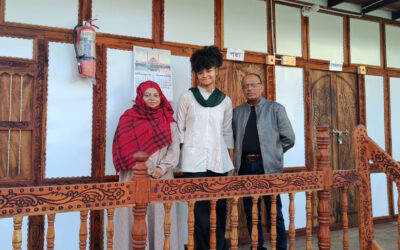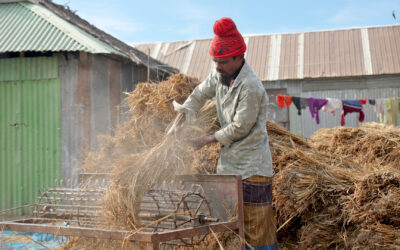EGE, a five-year programme to empower girls in rural communities concludes
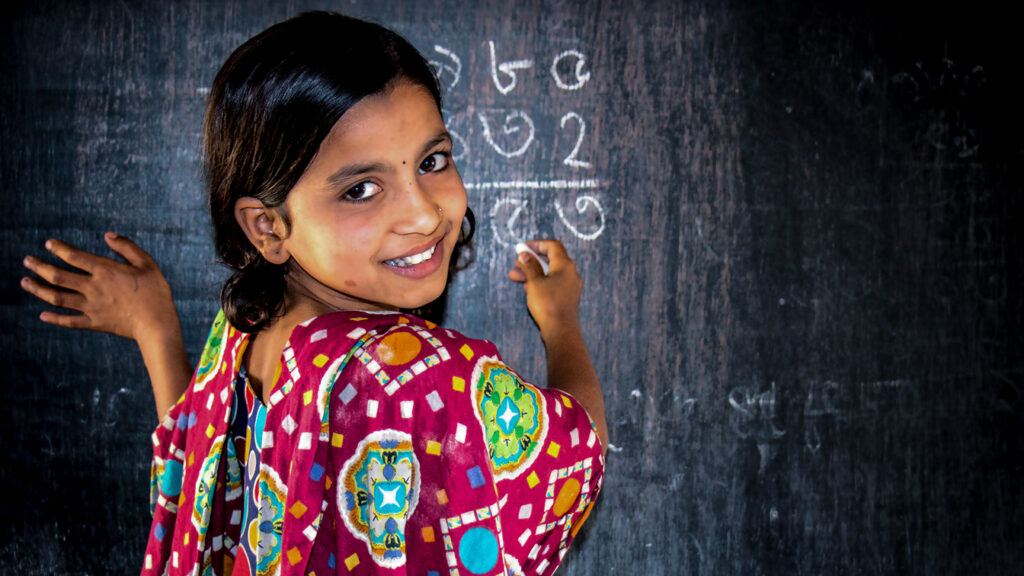
by Friendship News Desk
May 28, 2023
in October 2018, a programme was launched to help the educational and socio-economic development of female/girl children in rural Bangladesh, through the use of information and communication technology. The project, dubbed Empowering Girls through Education (EGE) from INGO Save the Children wrapped up on May 25, at Bangabandhu International Conference Centre after almost five years of operation. Friendship collaborated on the project for field operations.
EGE, designed in partnership with Hempel Foundation sought to assist the transition of girls from primary to secondary education, which is a more daunting task than may seem at face value. The girls being targeted in these remote, rural areas often bear the brunt of an already extant lack of access to infrastructure and services, because of long-standing, if often illegal, socio-economic norms such as child marriage. The reduction of child marriage and conservative or traditional mindsets through awareness building within the communities were also part of the design of the project, which directly reached 26,530 people, including 12,536 girls and as many parents, 780 assistant teachers, 120 government primary school head teachers and concerned government officers, among others.
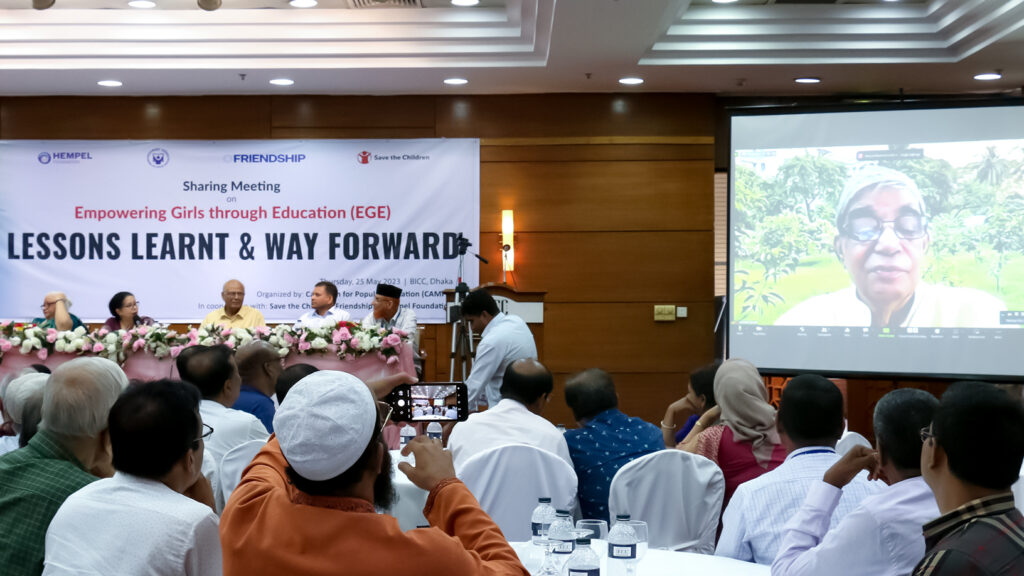
The project targeted girls from classes four and five, from 120 primary schools in Rajarhat sub-district of Kurigram district and Madarganj subdistrict of Jamalpur district. It uses child-friendly, engaging, interactive digital content developed by Save the Children and Brac, in consultation with the National Curriculum and Textbook Board (NTCB). This content is subsequently displayed through the use of electronic devices like tablets that are given to the children, and explained in detail by facilitators. The rural students also connected with their counterparts from cities through Skype sessions, to develop each other’s English, Bangla and mathematical acumen.
The students’ testimonials at the ceremony spoke well of the ease of use of the system, the joy of being able to connect with peers and students through the internet despite the physical distance, interactive lessons that made learning easier, the excitement of being able to use ICT despite living in a remote village, and being motivated to learn through more child-friendly methods. Many of their parents are, by their own account, illiterate and had not received the same opportunity in their time, and so were appreciative that their children did.
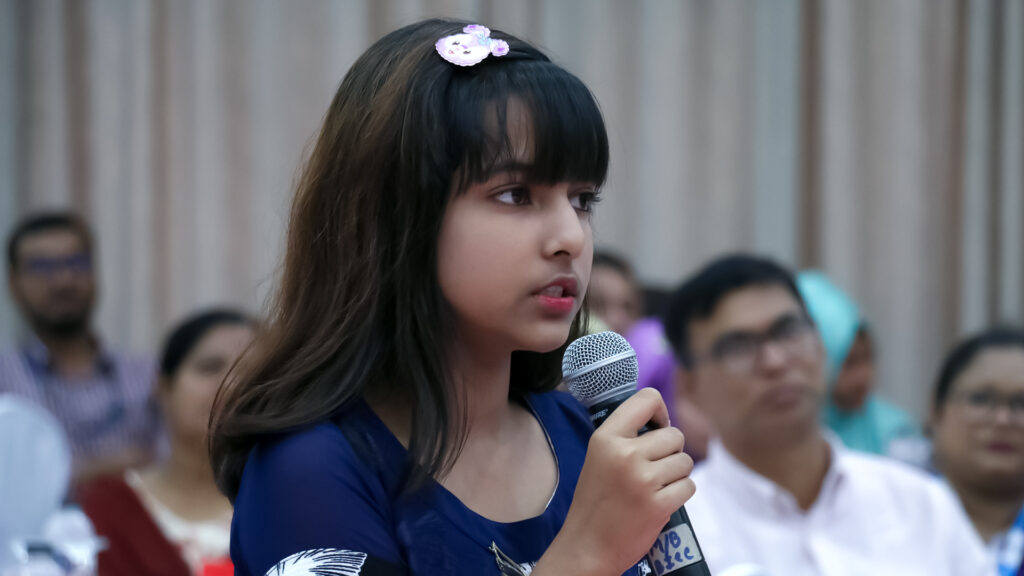
The project partnered with Friendship SPO, with considerable experience in the field, for the field operation as well as Campaign for Popular Education (CAMPE) to facilitate the policy advocacy initiatives. Also involved in strategic partnerships was the Aspire to Innovate (a2i) programme of the Bangladesh government’s ICT Division, Robi-Axiata and 10 Minute School. In communities where girls’ education was often viewed with scepticism and negativity, local government officials worked with Friendship to sensitise the local communities on the importance of girls’ education, and the physiological and psychosocial consequences of child marriage and early childbirth. As such, mental health psychosocial support services (MHPSS) were included in the project, to make the girls more aware of the importance of mental health, motivate them through crises such as the Covid-19 pandemic, track their psychological health and provide sessions needed. Another aspect during the pandemic was socially-distanced courtyard sessions instead of classrooms, which were imperative given the closure of all schools for one-and-half years through 2020-21.



The minister for Posts and Telecommunications, Mustafa Jabbar who was chief guest at the closing ceremony said, “every child in every school in this country should have a digital device in his hands. Without giving digital devices to every student to create smart people, we can never reach the goal of creating a smart Bangladesh. If our students are given opportunities, they can surpass any benchmark in the world.”
Runa Khan, founder of Friendship said, “These girls have blossomed, their learning efficiency amplified significantly, which in turn has eased their transition to secondary grades.”
Onno Van Menan, country director for Save the Children, Bangladesh said, “everything under the digital Bangladesh act proves that these comments belong in the past; we have seen through the tablet that girls have become more confident with technology and themselves”

